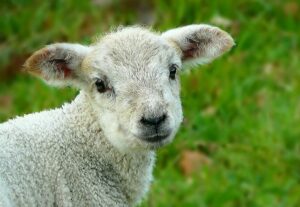
In this article, I wish to reflect on this crucial moment in history. Its impact marked a before and after in the trajectory of humanity. This event unfolds in the context of one of the festivals that God commanded His people to celebrate. It is the story of Passover, narrated in the gospels, which includes a series of events related to this festival and culminates with the crucifixion and burial of Jesus (Yeshua). Moreover, we cannot forget the significant events that happened after His crucifixion, such as His resurrection and ascension, which are also interconnected and coincide with other festivals, providing them with a new interpretation in the light of the messianic perspective and reaffirming their significance.
To understand and answer the initial question, it is necessary to focus on the tradition that God gave to His people Israel, especially in the celebration of Passover or Pesach. In addressing this issue, we must generally analyze how Jesus lived in His bodily form before this last Passover, as well as examine every detail of that last festival that marked the history of humanity.
The celebration of Passover (Pesach) begins the evening that ends the 13th day of Nissan, at sunset, and continues until sunset on the 14th day of Nissan, when the Passover lamb is consumed. This is what is referred to in Exodus 12:6 when it mentions “between the two evenings.”
There is a notable difference between this last Passover celebrated by Jesus and the previous ones He had in His earthly life when He incarnated and lived in a human body. Although we do not have documentation to confirm or prove His participation in the other Passovers, the gospels only recount this last festival. However, as a historical fact, we know that Jesus was born and grew up as a Jew, so it is logical to think that He would have been part of that culture and its traditions, participating in each of the festivals, including Passover (Pesach), which is one of the traditions of the people of Israel and is still celebrated today. These traditions were received by the people of Israel as a gift from God. Therefore, we assume that Jesus participated in other Passovers, considering the tradition of His people.
On the other hand, in this last Passover, Jesus experienced something different from the previous celebrations. The gospels narrate a series of events that distinguish it from any other. These events begin with the dinner of the first evening, which marks the beginning of the 14th day of Nissan, and continue with His crucifixion and burial before the second evening, which marks the end of the 14th day of Nissan. Each of these events was updated from the messianic perspective and some were added or enriched. An example is His crucifixion, which coincides with the death or sacrifice of the Passover lamb, performed between the two evenings of the 14th day of Nissan, among others. However, we must focus on whether Jesus ate from this last Passover and why. Since Jesus was crucified that day, at the same time that the sacrifice of the Passover lamb was being carried out in the temple, which each Israelite family had to eat according to tradition, He did not participate in that Passover because He was the lamb that was to be sacrificed, thus updating and expanding the meaning of this festival (Passover or Pesach). He only shared the dinner with His disciples on the first evening, known as the first Hagigah, which was the beginning of the festival and had an order similar to the Passover dinner (which would be the second Hagigah), the only difference being “the lamb,” which in the first dinner could be any lamb, while in the second it could only be a lamb sacrificed according to the regulations established by God in the temple. In that dinner, the Messiah added and performed some acts to the order of celebration (Seder), letting His disciples know how they should celebrate on future occasions. He also added and revealed new interpretive details for some of the steps in this order, thus enriching the meaning of this festival.
Since we are approaching the date of celebrating this festival, my question for you is: How do you celebrate Passover and what does it represent for you?
Author: Mesac Martinez
0 Comments